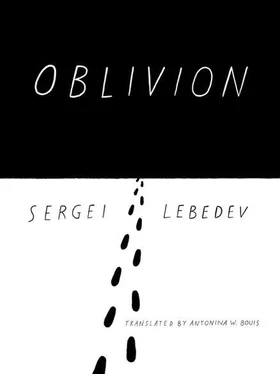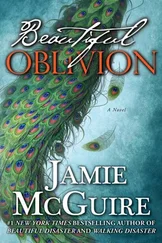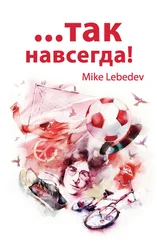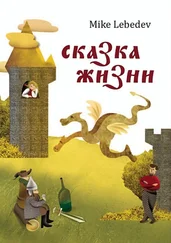Some of the patients had no guards—you could escape from here only if you had the intention to escape, it was impossible to get lost or go missing, so the patients were allowed to move freely; they were sent to the bosses’ houses to chop wood and haul water—the bosses liked these workers who made them feel even more important than did the usual prisoners; besides which the mental patients did not know to hate the bosses, the convoy guards, and their families, so the bosses could relax with them the way you do with a dog or cat—feeling superior and at peace.
The crazies came to Grandfather II’s apartment, too; his seven-year-old son, born near the camp, and knowing nothing but the camp and the camp people, unexpectedly grew attached to them; one of the madmen, whose name the engraver could not remember, used to carve wood and was the father of a large family; he had not seen children for two or three years. You couldn’t say he felt something for the boy, the son of the camp warden, for he had lost the ability to feel, but his fingers retained their own memory and carved—with a shard of glass, since the Psycho Brigade did not have knives or razors—a wooden bird whistle. He carved it mechanically, impartially, as if every child—the man knew what short stature meant—was supposed to have such a bird.
Grandfather II’s son, who had lived without toys—all the children of the camp guards grew up that way, they didn’t even know the usual children’s games like Cossacks-and-robbers, they played at the work of their fathers, being convoy guards or soldiers in the watchtowers—suddenly left his peers; the simple bird whistle touched something in him. No, he did not see the world in which he had been born and bred in a different light, he did not come to pity the prisoners or realize what his father was; the toy merely revealed that there could be another life, where the air can sing lightly; there are no songbirds in the tundra and the boy had never heard a lark or nightingale, nor did he know that people had songs: in his seven years he had heard only a few records and thought that singing was the work of a box with a handle and horn; the box knew how to sing in a human voice, that’s what it was made for, but people could not sing.
Lips touching the resonant opening, the exhalation giving birth to sound—the boy started breathing differently, certain powers within him, unrequired and dormant, awoke to life; he began seeking isolation, he made up simple melodies and whistled them, as if hypnotizing himself, summoning the unknown that arose inside him.
The way the engraver told it, there was something uncanny about how the boy grew attached to his whistle; the engraver recalled the legend of the Pied Piper of Hamelin and the children he led away with his flute; the crazy wood-carver had unwittingly made him a strange and scary gift. He came from the sticks, from the forests and swamps that three generations of irrigators, Tsarist and Soviet, had been unable to drain; he would run away from the orderlies and collect driftwood, burls and birch fungus, and carve the same things out of them: the mocking faces of forest spirits, distorted as if in a fun house mirror, and you could not say that he was making them up—he was releasing the features already in the wood, as if the forest truly were filled with taunting, beckoning faces, peering at people from behind trees and pretending to be clumsy growths should people turn back to look.
The boy was not losing his mind, but simply spent more and more time on his own; sometimes he mindlessly went off somewhere, as if the whistle of the singing toy extended a guiding thread visible to him alone, and an otherworldliness developed about him, as if he were here accidentally and would not stay long; the appearance of the bird whistle somehow stopped his growth, took away the powers of growth which children have in great abundance, with a reserve; these powers seemed to be exhausted in the vain and repeated attempts to breathe life into the wooden bird, which lived with another’s breath.
Finally, Grandfather II noticed that something was wrong with his son; he noticed too late and then acted with great persistence. The boy could not explain to his father—children do not have the language for expressing inner states—and even if he had, what would he have said? That he was enchanted by a toy made by a crazy prisoner? Grandfather II, thanks to the boy’s friends, learned about the whistle and took it away; he learned who had made it and summoned the crazy carver under guard; he no longer remembered the gift or the boy, and his fingers palpated the wood of the boss’s desk, as if trying to measure what could be done with such a thick oak plank if you cut it up and used it for various small items.
Grandfather II, given the limits of his perspective, decided that the carver was only pretending to be mad, that he was actually rational since he’d tried to gain the graces of a child who was the son of the camp warden; he became sophisticated in his cruelty: the miserable madman dared to think he could benefit this way, manipulating Grandfather II through his son.
He sent the carver to the distant timber area, where they prepared the beams for future mines. “Let him work with trees,” Grandfather II said, knowing that the madman would probably be squashed by a falling tree; he could have simply ordered him shot, but that would have been direct murder, and Grandfather II liked to act so that his sentences were executed by the apparent course of events, the forces of nature, postponed and removed: it was not his personal intention to send the man to his death, but the man fell into the whirlpool of fate, from which he could not escape.
Grandfather II’s son did not know what had happened to the carver; when they took away his whistle, he fell gravely ill. For a week the boy had a dry fever, his body tense and ossified; he cried out, struggling with something in his delirium. The doctor said that the child’s face changed so sharply and wildly, it seemed that two different people were arguing inside the boy, each appearing alternately in his face. One clearly showed the harsh pedigree of Grandfather II, who was born in a village by chalk cliffs over a river, where the soil was so imbued with lime that only cherries could grow there; the other face was tender as an infant, a vague face, as if he had just arrived in the world without a line of ancestors whose features could have shaped his. The one who had Grandfather II’s blood in his veins, thick and as viscous as the sap of cherry trees, was trying to push out this infant from the boy’s body, chase it away, toss it like a bird from the nest.
After a week, the boy awoke recovered, thinner and almost without memory; many memories did not survive the fever and had dematerialized, or maybe it was a part of his soul, the finest, purest, and childlike part that had dematerialized; he regained his health and forgot about the whistle, but he had become angular, wooden in his movements, as if the liveliness that gave fluidity to his body had been lost, and every scrape and bruise now lasted a long time on his skin.
He returned to his peers, but it was out of a sense of duty to be friends with boys his age; he played with them indifferently, without passion, and only hide-and-seek responded with his new sensibility: he searched badly, without focus, but he hid so well that it seemed he had not hidden himself at all, had no intention to hide—he simply vanished into a crack, like a coin into the floorboards, and when the seeker gave up, they all went looking for him, finding him only by accident. The boy had stopped wanting to be , his inner state was that of an old man; something extremely important had burned away in that illness, when Grandfather II sat at his bedside. He lost the gift awakened by the bird whistle, the gift of his own life, not subjected to anyone else, a life about which the boy had known nothing except the enchanting foretaste of it; the boy emptied out, grew as light as a wrapper, and that is why he did not hide playing hide-and-seek, rather he fell into empty spots, holes in the universe, like a random object that had no place of its own.
Читать дальше












